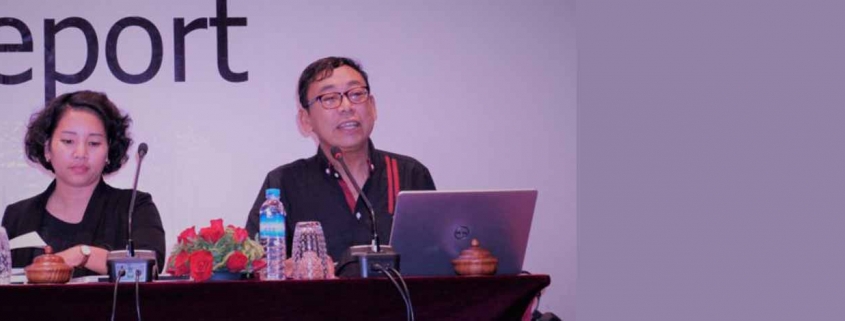Civil groups to submit human rights report
The review is a unique mechanism of the UNHRC aimed at improving the human rights situation on the ground of each of the 193 UN member states.
Under this mechanism, the human rights situation of all UN members is reviewed every five years.
The process reviews 42 states each year during three working group sessions usually held in January-February, May-June and October-November.
The Myanmar report will be written collectively by 38 groups, according to Cheery Zahau, a researcher of the report and also the country programme director for Myanmar of Project 2049 Institute.
The organisations focus on 11 specific human rights issues to ensure that such issues are addressed during the interactive dialogue in the form of questions and/or recommendations. The issues can also be raised through advance questions.
The 11 issues are freedom of expression, cooperation between the UN and regional mechanism, the rights of religious minorities, access to justice, corruption, child protection, gender equality, peace and conflict, human trafficking, sexual harassment of women in conflict zones, and sexual assault and the LGBT community.
Civil society organisations can discuss these 11 issues within the given time frame, Zahau said.
“Though we urge a focus on 11 issues, it doesn’t means only these issues are the main human rights concerns in Myanmar. There are many requirements that have to be implemented” she said. “Under the National League for Democracy (NLD)-led government, more freedom of expression problems are being seen.”
Zahau said that although the government is a signatory to several UN pacts, its implementation of these agreements has been weak.
“Cooperation with the international community has decreased, and that’s why Myanmar’s image is not good abroad,” she said. “The government does not have a good reputation abroad. As a people’s government, it needs to make more reforms.”
Zahau said about 60 recommendations on the 11 main issues are discussed in the UPR report.
According to the writers of the report, “the government refused to accept many recommendations that urged the government to combat hate speech and to protect the rights of religious minorities. The outgoing government continued to deny its discriminatory policies and practices against religious minorities.”
The Myanmar government participated in the First Cycle (2011-2015) of the UPR process. Out of the 197 recommendations made to the government during the process, 77 were accepted, 95 were noted, 13 were pending and 12 received an unclear response.
During the Second Cycle (2015- 2020), the government accepted 166 out of the 281 recommendations it received from member and observer states.
Similar recommendations related to key human rights issues agreed upon by the government during the First Cycle of the UPR remain unaddressed.
The midterm report will be based on the 166 recommendations the government accepted during the Second Cycle of the UPR process.
Aung Myo Min, executive director of Equality Myanmar, expressed hope the UPR process can help improve the human rights situation in Myanmar.
“All international and local organisations will help the government by monitoring and providing advice to the government’s activities,” he said. “The midterm report aims to improve cooperation rather than criticising.”
The civil society groups will provide the government a copy of the midterm report.
The government will face the UPR process Third Cycle between October and November 2020.



